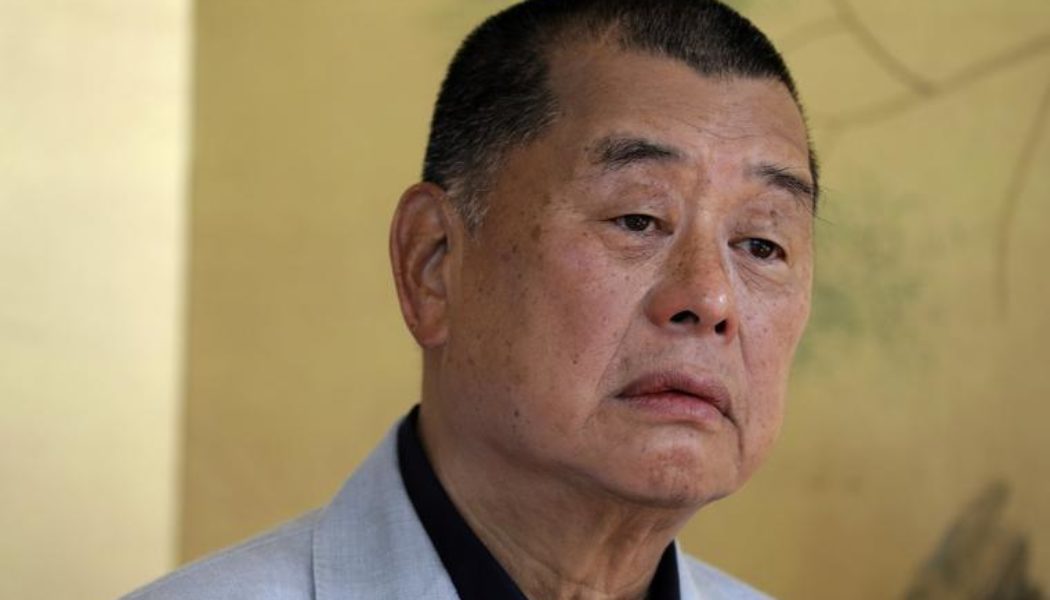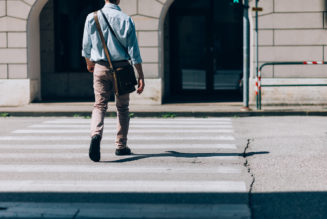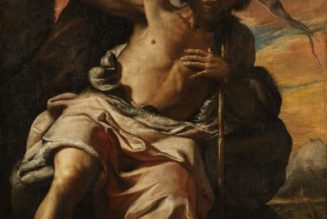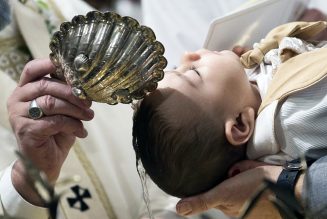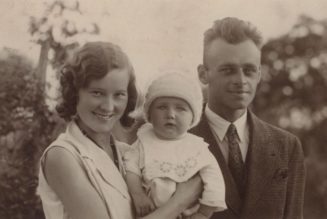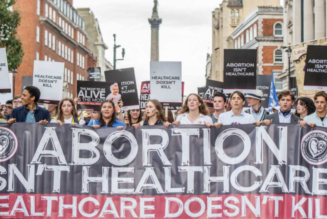
HONG KONG — Hong Kong’s Beijing-backed authorities have been accused of staging a show trial “worthy of Stalin,” as Catholic entrepreneur Jimmy Lai went on trial Monday on charges of breaching national security and colluding with foreign forces.
Lai, 76, arrived at a Hong Kong court on Dec. 18 amid a heavy security presence and dozens of supporters for a trial expected to last several months.
The self-made media mogul, who denies all the charges, has already been detained for more than 1,000 days and faces the possibility of life in prison if he is found guilty — an outcome that observers say is most likely.
His arrest and incarceration followed the imposition of a national security law in 2020 in response to massive pro-democracy protests in 2019. The controversial law aims to punish what China considers to be subversion, secession, terrorism and working with foreign powers, but critics say it aims to quash dissent by removing civil liberties and free speech.
Lai was arrested and jailed for 13 months in 2021 for taking part in a banned vigil for the anniversary of the Tiananmen Square massacre, but some of the most serious charges against him concern his Apple Daily newspaper, which was staunchly critical of Beijing and for which a colonial-era law is being used.
The newspaper was forced to close in 2021, following a raid on its offices. Six former Apple Daily executives were arrested along with Lai, accused of “colluding with foreign forces” to endanger national security.
His prosecution has caused an international outcry, with the opening of his trial prompting condemnations from both the U.S. and U.K. governments.
In a Dec. 17 statement, U.S. State Department spokesman Matthew Miller said the treatment of Lai and other clampdowns on democracy in the territory have “undermined Hong Kong’s democratic institutions and harmed Hong Kong’s reputation as an international business hub.” Miller said the U.S. calls on the Hong Kong authorities to “immediately release” Lai and “all others imprisoned for defending their rights.”
British Foreign Secretary David Cameron said in a Dec. 17 statement that he was “gravely concerned” for those facing prosecution under the national security law, especially Lai, who holds dual British and Hong Kong citizenship.
Lai had been targeted in a “clear attempt to stop the peaceful exercise of his rights to freedom of expression and association,” Cameron said, and he urged the Chinese authorities to repeal the national security law, end the prosecution of all individuals charged under it, and release Jimmy Lai.
Lai is one of more than 250 activists, lawmakers and protesters detained under the national security law and sedition charges.
Beijing Response
The Chinese embassy in London rejected Cameron’s statement, saying the U.K. was backing an “anti-China, Hong Kong destabilizer who broke the law,” which it said “constitutes flagrant interference in a case that has already entered judicial proceedings.” Beijing was already reportedly angered by Cameron meeting with Lai’s son Sebastien last week.
In comments to the Register, Mark Simon, a former senior executive of Next Digital, Lai’s media company that published Apple Daily, noted that “it has taken two years, but the British government is finally stepping up to its responsibility.” Highlighting “great support” for Lai in Canada and the U.S., he also observed that the European Union “has been quite supportive” and that there has been “a steady trajectory of increased support from governments.”
The British Catholic pro-life advocate Lord David Alton of Liverpool, who has been a staunch defender of Lai and democracy in Hong Kong, called the trial of Lai a “persecution” and “a charade of a show trial worthy of Stalin, making a mockery of justice.” Joining his voice to government demands for his immediate release and that all of Hong Kong’s political prisoners, Lord Alton said it is the “CCP [Chinese Communist Party] who should be on trial, not Jimmy Lai.”
Cardinal Joseph Zen, almost 92, the bishop emeritus of Hong Kong and a friend of Lai who is himself currently on bail for breaching the national security law, was present at the trial Monday to offer his support.
Holy See’s Silence
But the Holy See has so far been publicly silent about the case, issuing no statements, condemnations or public demonstrations of support because, observers say, it wishes to protect its controversial provisional agreement signed with Beijing in 2018 on the appointment of bishops.
Lai’s friends have roundly criticized such an approach. Wall Street Journal commentator Bill McGurn, a godfather of Jimmy Lai since he was received into the Church in 1997, told the Register that, in his opinion, “Vatican diplomacy with China has fatally compromised its witness.” McGurn called it “dreadful” that Lai has been effectively “abandoned” by the Vatican, as the Pope does not mention him, and Hong Kong’s new bishop, Cardinal Stephen Chow, has, “as far as I know, not visited Jimmy Lai’s family.”
Simon said the Pope and the Vatican have “knowingly abandoned him,” despite being well aware not only of Lai’s plight, but also that they are in a position to “offer support and help him.” For them, he said, “this may come at the expense of their failed deal with China, so it’s a ‘No’ on helping Jimmy Lai.”
Father Robert Sirico, co-founder and president emeritus of the Acton Institute for the Study of Religion and Liberty, said such silence adds to the odds stacked against Lai.
“Of course, the weakness and compromises of other countries, and most especially of the Vatican itself, makes the likelihood of any kind of justice for Jimmy more difficult,” he said. “In effect, it says to the communist authorities that they will have no consequences for their actions and will thus embolden their authoritarianism.”
The Register contacted the Holy See Press Office and Cardinal Chow for comment but they had not responded by publication time.
Lai’s trial follows closely on the heels of the conclusion of a trial of 47 other proponents of Hong Kong democracy, 31 of whom pleaded guilty. The verdict of their trial is expected in March. By contrast, Lai pleaded not guilty because he refuses to say his peaceful advocacy for freedom is a crime. He also resisted the option to seek refuge abroad, which was a possibility open to him.
“Keep in mind that he knew the reality he was facing when he made the decision to remain in Hong Kong, despite the ability to take up residence in any number of other locations and continue the fight for freedom outside the reach of the Chinese Communist Party,” said Father Sirico, whose Acton Institute produced an acclaimed hour-long documentary on Lai earlier this year, available for free on YouTube. “Prior to his arrest, he said that he could not ‘stir up things in Hong Kong and just leave. … Now is the time for courage.’”
Father Sirico said what Beijing and Hong Kong want from this trial is “precisely” to send out a warning “not to resist the national security law.”
No Mercy Expected
Noting that last week the Chinese foreign ministry called Lai the “mastermind” behind the pro-democracy protests, McGurn said the message is: “‘If we can get Jimmy Lai, we can get you.’ And they are getting many people.” Simon said that for the CCP and the Hong Kong government, it is important to falsely portray Lai as “a black hand of the West fermenting a color [pro-democracy] revolution” as part of “their narrative of foreign interference.” He is therefore widely expected to receive a hefty sentence.
“No one I know sees any mercy coming from these guys,” said Simon. “We have to drop any assumption of fairness and the values of the West.”
Instead of a jury, Lai is to be tried by three judges handpicked for national security cases, and the Hong Kong authorities have denied his choice of a British defense lawyer. At the same time, Hong Kong and China insist their laws are just like other countries, but it is a position few Hong Kong residents are buying, according to polls.
Arriving at court on Monday, Lai reportedly looked thinner than in earlier hearings but smiled and waved at relatives in the courtroom. He has been incarcerated in Stanley Prison, an old jail that was used by the Japanese in World War II.
“It’s not easy, and with no air conditioning and no heat, so it can be quite rough,” said Simon. “The staff are not abusive, but he is in solitary, which is hard on him. Finally, he has diabetes, and so there is always that worry, when we consider his age.”
Father Sirico said that he had heard Lai is “doing relatively well, given his circumstance,” and that he has been “working his way through St. Thomas’ Summa Theologica.”
McGurn said that Lai “has the serenity that comes from knowing he is doing the right thing; and the two forces that give him strength: his faith and a devoted wife.”
